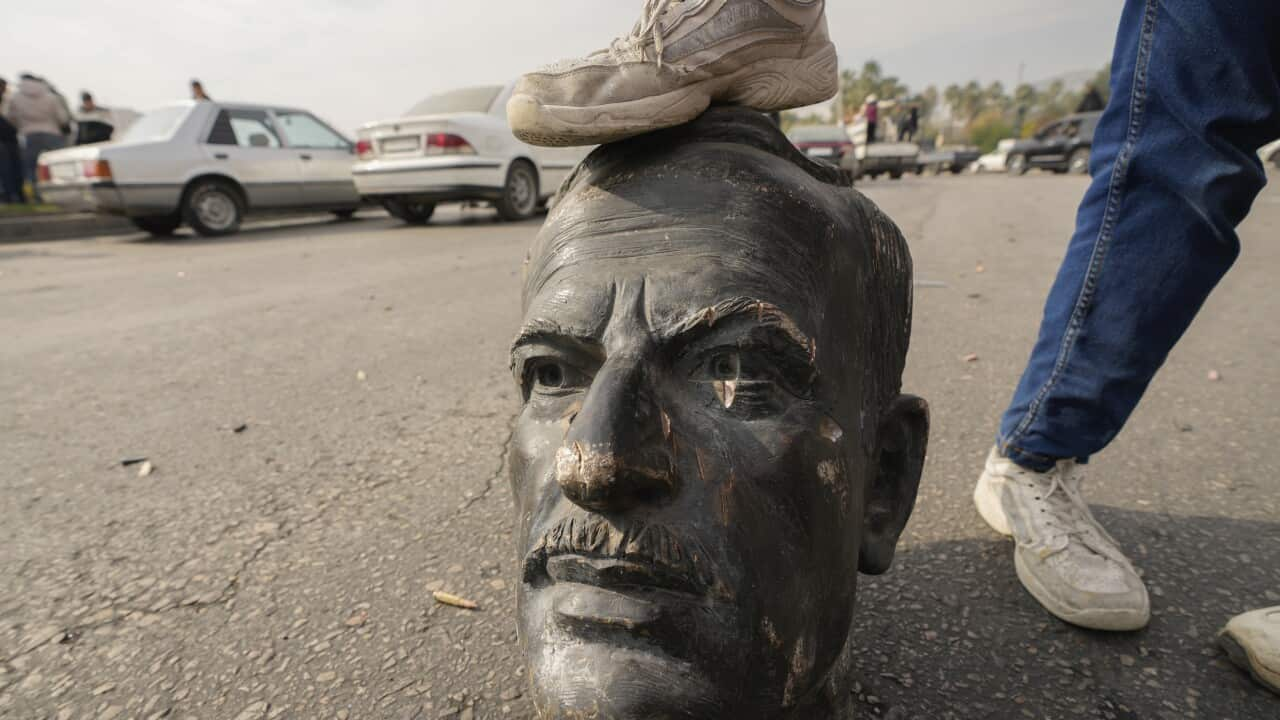TRANSCRIPT
Ousted Syrian President Bashar al-Assad's prime minister has agreed to hand power to the rebel-led Salvation Government.
It comes a day after the rebels seized the capital Damascus and al-Assad fled to Russia.
The imminent transfer of power follows 13 years of civil war and it marks an end to more than 50 years of rule by the al-Assad family.
It leaves Syrians at home and millions of refugees abroad hopeful yet deeply uncertain about their country's future.
“There’s been a change. You can now see people going out into the streets. Those who were trapped in fear inside their homes for a long time have started to go out, shop, and buy things. Things are much better than before, God willing. This is the situation. We don’t know anything anymore. We just want stability in the end—that’s all.”
At least three civilians have been killed during protests in northern Syria, as people take to the streets to demand the expulsion of the Kurdish-led Syrian Forces.
This region was not taken by the rebel forces that captured the capital, Damascus.
The United Nations Security Council has been meeting to discuss the evolving situation in Syria.
Concern has been communicated around the public sector coming to an abrupt halt, with some key government services shut down - causing issues at airports and borders.
But politicians have remained positive about the future of Syria and its government.
U-K deputy ambassador to the UN, James Kariuki says there's support in building an inclusive political process for the future.
"We're very, very clear that the future of Syria is for the Syrian people. And we look forward to hearing from the special envoy about how he's going to support them in building an inclusive political process for the future, a future that we've been waiting for and they've been waiting waiting for for many years now. You will have heard my foreign secretary say in the afternoon that the Assad regime was a monstrous regime. This is a moment for the Syrians, a moment of hope and a moment of uncertainty. We look forward to hearing from the special envoy about how he's going to help them build that political future."
The opposition fighters who overthrew al-Assad have announced a general amnesty for all military personnel conscripted into service under the former ruler.
Meanwhile, Türkiye says it's opening its border gate with Syria to manage the safe and voluntary return of the millions of Syrian migrants it hosts.
German Chancellor Olaf Scholz and French President Emmanuel Macron have reportedly discussed the possibility of cooperating with Syria’s new leaders.
United Nations spokesman Stephane Dujarric says those who want to return home must do so voluntarily.
"We want to see the best possible future for the Syrian people, one that they choose themselves, one that is inclusive, one is fully respective of the rights of minorities as we know, and as you know, the situation is moving very quickly. I think things will be hopefully clearer in the coming days."
In Russia, where Bashar al-Assad has been granted asylum, residents say they understand why he's there - as Russia supports its allies.
Residents have expressed support for the move, saying it was planned well in advance.
"Probably he is looking for more safe and secure conditions for himself. This is normal, when a person is seeking certain safety. I think there was external influence. A certain critical point has been reached. I think it was not a coincidence. If it was a decision of our state, it was probably a correct one. I trust the opinion of our politicians."
That story by Ciara [[kee-RAH]] Hain for SBS News, produced by (in language program) for SBS (in language broadcaster).













